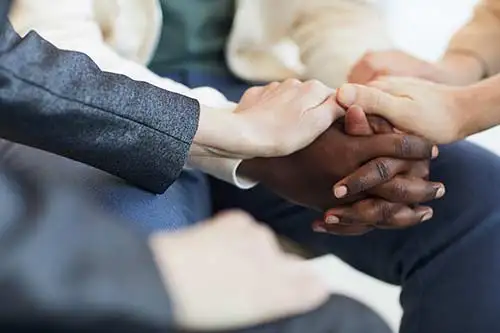s usually consumed as a liquid. Because it has no smell and little taste, anyone can easily conceal it in a bottle of water or an alcoholic drink. G is rarely used as a stand-alone drug and is often consumed with a mix of other drugs. Currently, most users use G alongside crystal meth to enhance sex.
Continue readingThe Origin of Adam Banks Recovery
Runway 04 at Newark Airport, I took a moment to appreciate my view of the New York skyline. I remember taking in the beauty of southern Manhattan, anchored with the Twin Towers.
Continue readingCrystal Meth Interventions in the Gay Community
We have watch as gay men have been becoming increasingly sick and developing more severe mental health problems and we struggled to figure out why. We must host an intervention immediately on people using this drug.
Continue readingHow Does Drinking Affect Your Life?
At this point, I’m comfortable with defining myself as a former alcoholic because I know that that is just one part of who I am. I have introduced myself as such on numerous occasions; it is a commonality that I share with the other members of my support group. But I also identify with many other titles, such as father, son, pilot, recovery professional, and business partner.
Continue readingFinal Bottom Lines: Two Options
Sometimes an intervention goes all they way to the last step. Offering a choice between recovery and family life.
Continue readingLGBTQ+ interventions and recovery meetings
Conducting successful interventions with LGBTQ+ individuals requires personal experience with the community. While the interventionist doesn’t need to be gay, they must be empathetic to the sensitive issues surrounding our identities.
Continue readingThe Week Before Treatment: Life After The Intervention
After a successful intervention, it is common for the identified loved one to delay the check-in process for a few days. Although work and family commitments are often cited, some people use seemingly trivial reasons, such as upcoming holidays and events, as a means of avoidance.
Continue readingEnchanted: Drawn to a Substance
I earned my first pilot’s license at 16 and I was hired to fly for an airline the week that I graduated college. From that moment on, my career path was carefully laid out before me and all I needed to do was follow it to the end. But then I didn’t. I abandoned the path.
Continue readingThe Family Recovery Agreement
A recovery agreement is a positive document, encouraging long-term recovery, and outline a path to family reunification. Prior to treatment boundaries were crossed and ultimatums yelled. The recovery agreement reestablishes boundaries and encourages more treatment and helps to rebuild trust.
Continue readingThe Hard Road to a Happy Life
I draw a parallel between using drugs and a ride in an amusement park. Just like a roller coaster, drugs have an exhilarating aspect, but we don’t go to the amusement park every day. We enjoy the ride and move on to the next thing; our experience becomes a memory – not a way of life.
Continue readingAdam Banks: My Story
It took me a full two years to finally “get” lasting sobriety. I have used my sobriety as a launch pad for my life.
After I got sober, I was able to really focus on the company that I had started. I gave a physician friend just enough money to start his own medical practice.
Reaching Out: The First Call for Help
The first call sets the ball in motion for a suffering person to move towards the path of recovery. From the outside looking in, a phone call may seem small, but that person may have been thinking about dialing my number for weeks, years even.
Continue readingHow to Survive the Road to Recovery
Continuing to use is a direct path to problems while a life in recovery is full of new opportunities. Things that I couldn’t imagine doing when I was using are now my reality.
Continue readingCelebrating the Milestones of Recovery
There is no overnight success for people in recovery. People need to stay engaged and actively working to overcome their addictions.
Continue readingComprehensive Care: Why 6 Months of Treatment?
Comprehensive Care, the POC goes into treatment with love. We continue to meet as a family while they are in treatment. The family is also prepared to support their journey of recovery after treatment.
Continue readingWill Rehab Work? What is the Success Rate?
When families ask to know the success rate of a facility, they’re really asking me, “will this work? Is it worth the investment?”
Continue readingUnderstanding Addiction Using Food Cravings
We have all had cravings for food, cravings pop up out of no where and can be so strong that we ‘just must’ act on them. How many slices of pizza, General Tso’s Chicken, and late night Ben and Jerry’s binges have you had that were born of a craving for them?
Continue readingThe Butterfly Effect – In Recovery Small Changes Can Make A Huge Difference
In recovery, the butterfly effect starts with a simple phone call. The first call is the start of a process, the first flap of the butterfly’s wings.
Continue readingLife On The Road: The Story Of A Pilot
As long as I could stop drinking 12 hours before flying, I didn’t see a problem with my drinking. In a way, having a federally mandated “hard stop” on my use kept my drinking in check, but it also allowed me to maintain the false belief that I didn’t have a problem.
Continue readingGenerational Effects of Alcohol and Drug Use
The trauma of loss – of culture, family, and country – could drive anyone to cope by using alcohol. People of those generations may have been trying their best to raise their children, but they probably didn’t have much bandwidth to parent.
Continue reading



















